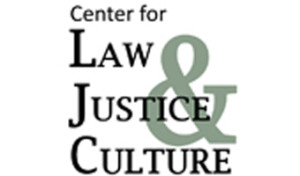The Center for Law, Justice & Culture invites undergraduate students from all majors to apply for the Certificate in Law, Justice & Culture at Ohio University by Oct. 8.
Enrollment in the certificate program is a competitive process modeled after selection for law and graduate schools. Students with an overall GPA of 3.4 or above are eligible for 25 slots per year. Students who do not meet the GPA requirement may submit an optional essay explaining their qualifications.
Ohio University alumna Sarah Welch ’16 credits the certificate, along with mock trial experience, for preparing her for law school. (See Sarah Welch to clerk for Supreme Court Justice Brett Kavanaugh.)
The program brings together interdisciplinary coursework from African American Studies, Anthropology, Criminology, English, History, Political Science, Social Work, Sociology, and other departments across the social sciences and humanities to provide students with intellectual training in a “law and society” perspective. It also provides opportunities for faculty mentoring through research projects, internships, study abroad, and career guidance.
The application deadline is Friday, Oct. 8, and students are asked to submit an essay in response to a prompt, as well as a current transcript. The application portal is now open. Student applications are accepted once per year. Students from all majors are invited to apply.
Once accepted into the program, Law, Justice & Culture certificate students will enroll in LJC 2000: Core Course in Law, Justice & Culture in 2021-2022. Students also are required to take POLS 2200 and SOC 2600, as well as three upper division courses from a list of electives. At least one LJC elective course must be outside of the major, to ensure exposure to interdisciplinary perspectives.
As they proceed through the certificate coursework, LJC students participate in the intellectual life of the center and engage in practice-oriented learning opportunities such as internships and research projects, all dealing with issues of democratic governance, social justice, and human rights.
The program is appropriate for students who plan to pursue professions in law, rights advocacy, justice administration, public policy, government, nonprofit organizations, and academic research and teaching, with a U.S. or global focus.
For more information, contact Dr. Julie White, professor of Political Science and director of the Center for Law, Justice & Culture, for more information about the certificate program.



















Comments